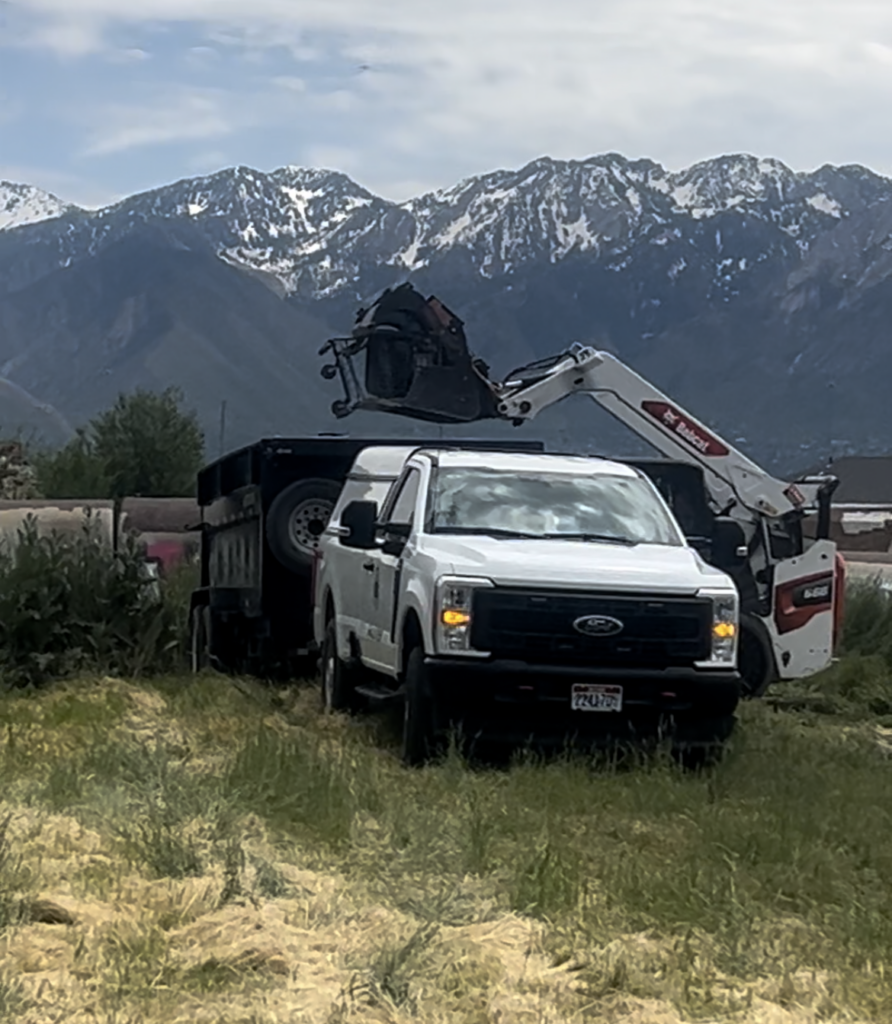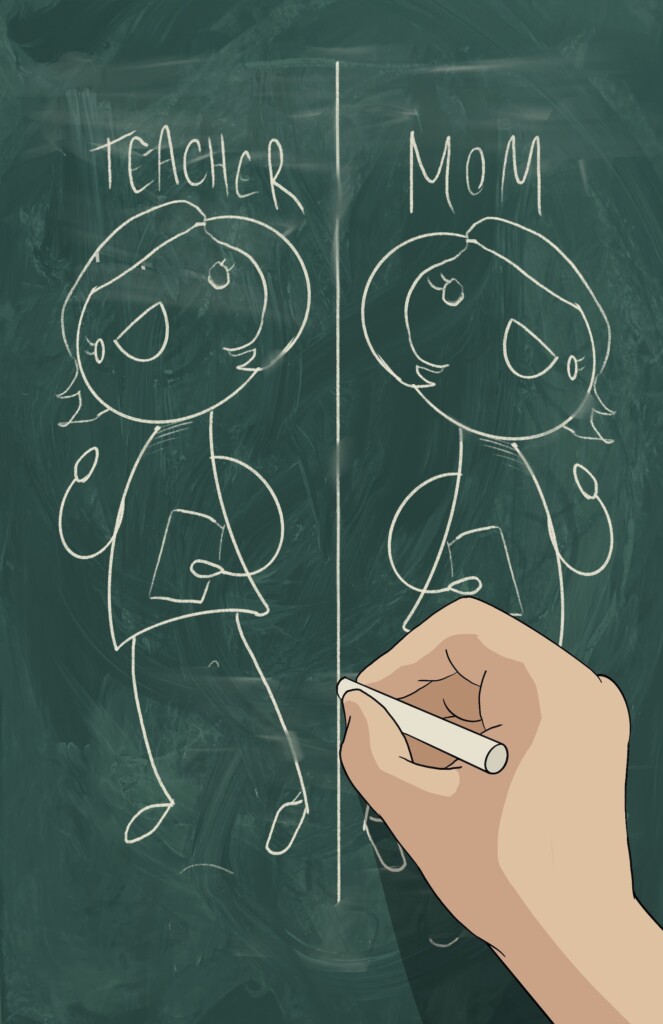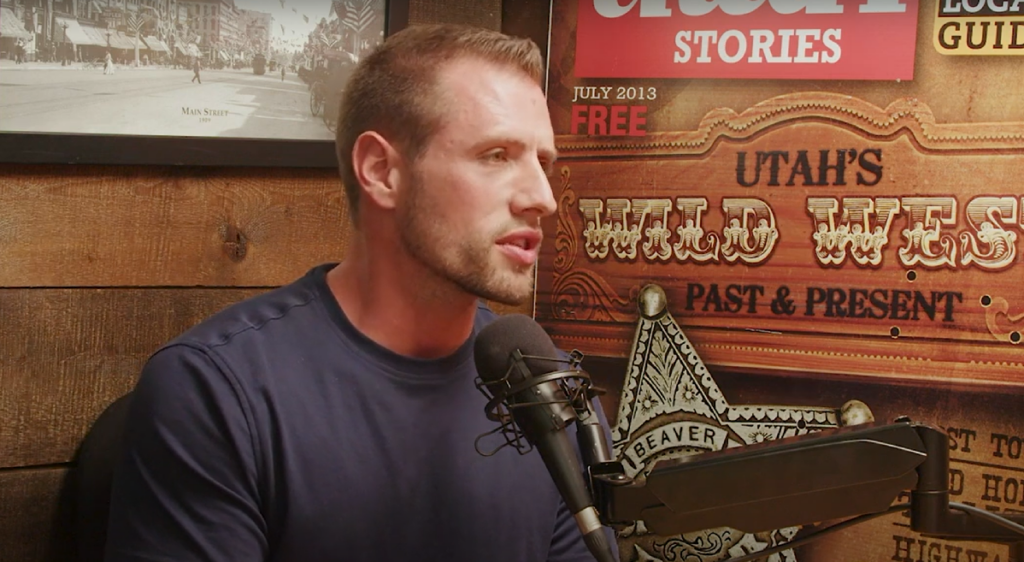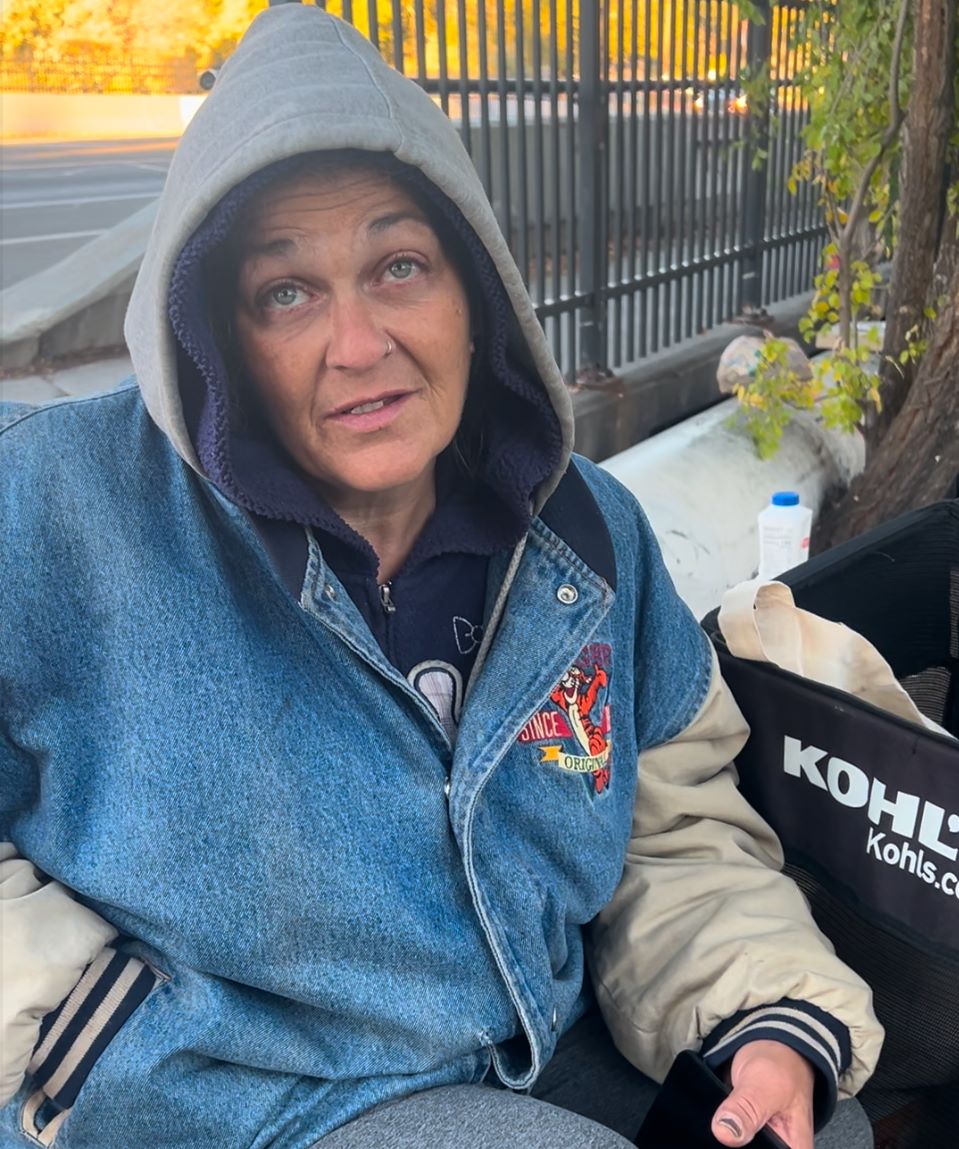Public camping on the Jordan River Parkway Trail in Salt Lake City has been a major political issue and a sanitation problem. There are clearly two sides: On one hand there are hundreds of homeless people who are unable to secure housing. On the other hand, the trail is a public asset and a playground for thousands of residents in Salt Lake City, and homeless encampments create ongoing garbage and blight.
Public camping is illegal in Salt Lake City, and the Supreme Court recently ruled that cities can constitutionally enforce anti-public camping laws. Still, this is a humanitarian issue, especially for those who have fallen on tough times.
Tammy and her husband Robert lost their home. “We really have no other place to go,” Tammi says. Due to their desire to stay together, and after their Yorkshire Terrier recently delivered a litter of puppies, they have no short-term housing options other than camping in a somewhat secluded spot near the Jordan River. “This is home for us right now, until we can get into a place.” But what is the long term solution?
Solutions Utah is a non-profit organization that has stepped up to solve this problem by offering legislative priorities and data to help our government leaders make better policy decisions.
Dale Keller, executive director of Solutions Utah, worked on the leadership team at the Salt Lake County Health Department for three decades.
While working at Salt Lake County Health, when no other organization was willing to step up and attempt to solve the increasing problem of homeless encampments producing massive amounts of garbage, Keller took the lead and started working on clean-up efforts in 2005.
“It’s one of those things where you decide you are going to try to solve the problem, then everyone starts looking to you to maintain the solution.”
Keller explained that neither county or city parks had the resources to clean up the Jordan River, so the County Health Department took the lead.
On their first clean-up effort, Keller and his team cleaned out more than 100 tons of garbage in 2005. They have continued to conduct clean-up efforts, now called “abatements”, which have become a standard procedure.
Campers along the Jordan River are supposed to receive a 48-hour notice that they need to vacate the area. Then the team of Health Department workers come in with front-end loaders and dump trucks and proceed to clean up the area from garbage and debris including old bikes, shopping carts, tents and supplies, as well as human feces, which is causing the Jordan River north of 1700 South to have “high coliform counts,” says Keller.
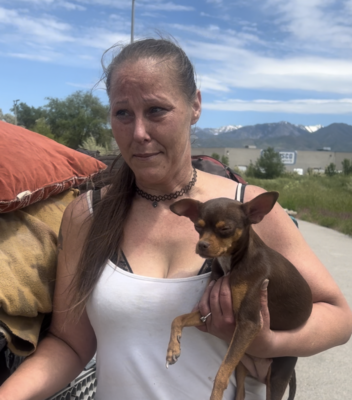
According to Tammi and Robert, they no longer receive notices for abatements and they are usually given just a few hours and sometimes as short as 30 minutes to clean up. Police officers at the scene of the abatement that we witnessed said they always give notice. Still, Tammi’s life is contained in about seven shopping carts.
“Where will you go?” I ask.
“I don’t really know. It’s just the same-old-same-old, we usually move down the river and eventually we go back,” Tami said.
Tammi tells me that there is a lot of drug use and rape, and unwanted sexual advances by criminal homeless are common.
“A man attempted to rape me and my friend. I ended up in the hospital and I wanted to press charges, but I didn’t even get a chance.”
Tammy alleges that the Salt Lake City Police Department did not give her any opportunity to press charges. She says that there is a double-standard when it comes to justice for people who have homes and those who do not.
“What should be done to help the people out here?” I ask.
“All we would like to have is some porta-potties, a dumpster, and some security,” Tammy says.
“So, a sanctioned campground?”
“Yes, just an area we can be, where we won’t get constantly harassed.”
When I asked Keller about this he said I should speak with the current Director of the Salt Lake County Health Department or Mayor Mendenhall (who has not returned Utah Stories phone calls). But, he said that he is very much in favor of a sanctioned campground and he even went so far as to recommend a spot where it should be.
“I tried to get approval for a piece of empty ground (owned by the city) near the fairgrounds, but I just received too much push-back,” Keller said.
Officials and the homeless know there should be a sanctioned campground. Why isn’t one being built? Why is nobody stepping up to assist the homeless in having a place to go? The Supreme Court’s Grant’s Pass decision will increase enforcement of the “shelter resistant” in other cities such as Portland. Will they increase abatements in Salt Lake City as well?
Support Utah Stories’ local journalism and help us answer these ongoing questions regarding homelessness and housing by subscribing to our print magazine for $3 per month. U
Follow us on:
Instagram@UtahStories
Twitter@UtahStories

